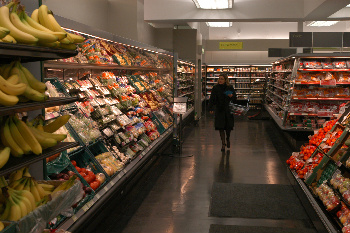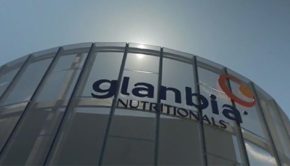Grocery prices soar 10 times the rate of inflation

New figures from Kantar show some household staples are 16% more expensive than this time last year
10 June 2013
The price of groceries has soared at 10 times the rate of inflation with some household staples now 16% more expensive than this time last year. New figures from Kantar Worldpanel show the impact of soaring prices on squeezed household budgets. They reveal that the price of the overall weekly grocery shop is up 5% in the 12 months to May 2013. That means grocery prices are rising 10 times faster than general inflation measured by the Central Statistics Office (CSO), which currently stands at just 0.5%.
The new inflation figures are based on the prices of 30,000 different grocery items collated by industry analysts Kantar Worldpanel across all supermarkets and include a vast range of food, cleaning products and toiletries.
Consumers have also been hit with further hikes of 10c per litre for milk in the past few days which will push shopping bills even higher just as householders struggle to pay the new local property tax. Rising commodity prices, bad weather and higher government taxes have all contributed to the surge in food-price inflation.
The Kantar data reveals that vegetable prices are up 16%; alcohol is up 10%; meat and fish prices are up 6.2%; bakery goods are up 4.2%; and household products su
ch as detergent are up 5.8%. While dairy prices only rose by 0.5% in the past year, that has changed in the past few days as the price of milk has shot up by 10c per litre. With €1 out of every €9 we spend going on dairy products, that milk price hike alone is certain to feed into even higher grocery price inflation over the coming months.
Kantar Worldpanel commercial director David Berry said that its inflation figures were based on the individual prices of 30,000 items weighted according to their popularity with shoppers to produce overall figures. They were sourced from all supermarkets and include branded, own-brand and items sold loose to reflect Irish shopping patterns. Mr Berry said that global commodity prices and domestic factors such as the excise hikes on alcohol, and particularly on wine, had contributed to the price hikes.
"The large increase for vegetables is related to bad weather last year which damaged yields, particularly for potatoes," he said. "Consumers can and do make efforts to avoid the full impact of price increases by switching to cheaper products or to different supermarkets," he said.
Ibec’s Retail Ireland director Stephen Lynam said that supermarkets were not ripping consumers off as all price increases were based on higher costs from suppliers, with utility and local charges also up 7% in the last year. "There is cut-throat competition in the grocery sector, and supermarkets know that the idea of consumer loyalty to one shop or one brand is over, so nobody is raising prices unnecessarily," he said.



 Print
Print





Fans 0
Followers